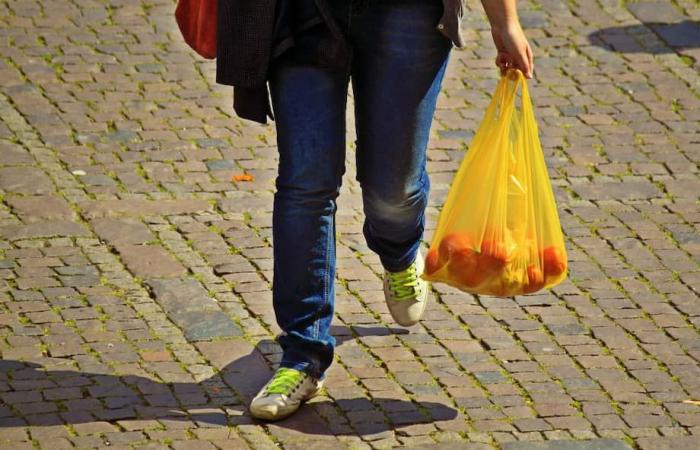The rule comes into effect on July 7.
Photo: Pixabay
Starting next July 7, the production and use of some single-use plastic products will be prohibited in Colombia. According to the Minister of the Environment, Susana Muhamad, through a resolution “almost 80% of the plastics law issued by Congress in 2022” is “regulated.”
The law that Muhamad is talking about is 2232 of 2022, in which, in addition, “provisions are issued that allow their gradual replacement by sustainable alternatives and the closing of cycles.” To this end, a list was established with the products that will stop being produced from that date. These products are:
♻ Payment point bags used to pack, load or transport packages and merchandise, except those reusable or for industrial use.
♻ Bags used to pack newspapers, magazines, advertising and invoices, as well as those used in laundries to pack clothes.
♻ Rolls of empty bags on commercial surfaces to pack, load or transport packages and merchandise or carry bulk food, except for raw animal products.
♻ Containers or packaging, containers and bags to contain non-prepackaged liquids, for immediate consumption, to take away or for home deliveries.
♻ Plates, trays, knives, forks, spoons, glasses and gloves for eating (That are part of the constitutive sales unit).
♻ Drink mixers and straws.
♻ Plastic supports for inflation pumps.
♻ Confetti, tablecloths and streamers.
♻ Sheets for serving, packaging, wrapping or separating food for immediate consumption, used for take-out or home delivery.
♻ Plastic holders for cotton swabs or flexible swabs with cotton tips.
♻ Single-use dental floss handles or floss holders.
♻ Packaging, containers or any other receptacle used for marketing to the final consumer fresh fruits, vegetables and tubers that in their natural state have peels; fresh aromatic herbs, fresh vegetables and fresh mushrooms.
♻ Stickers, labels or any badge that is attached to vegetables.
The law also establishes a series of fines if this law is not complied with. For example, a natural or legal person must pay fines of one hundred to fifty thousand legal monthly minimum wages in force at the time of the occurrence of the events.
The plastic elements mentioned in the law may also be confiscated; temporarily close the establishment, which may not exceed one month; or the establishment could even be permanently closed.
These sanctions, the law adds, “will be imposed by the competent environmental authorities, who will develop the guidelines for the grading of sanctions based on the magnitude of the non-compliance, the economic condition of the offender and the nature of the repeat offender.”
Article 5 of the law also establishes a list of plastic products that are exempt from the regulation. These are:
♻ Those that have medical purposes for reasons of asepsis and hygiene; and for medical, pharmaceutical and/or clinical nutrition conservation and protection that do not have alternative materials to replace them.
♻ Contain chemicals that present a risk to human health or the environment when handled.
♻ Contain and preserve foods, liquids and beverages of animal origin, as well as processed or pre-prepared wet foods or inputs that, for reasons of asepsis or safety, because they are in direct contact with food, require a single-use plastic bag or container. use.
♻ Specific purposes that for hygiene or health reasons require a single-use plastic bag or container, in accordance with health regulations.
♻ Provide services in establishments that provide medical assistance and for use by people with disabilities.
♻ Single-use plastics whose substitutes, in all cases, have a greater environmental and human impact according to Life Cycle Analysis results that incorporate all stages of the plastic life cycle (raw material extraction, production , manufacturing, distribution, consumption, collection, final disposal (including its persistence in the environment).
♻ Those packaging or containers of the products taken into consideration – by the National Administrative Department of Statistics (DANE) for the determination of the Consumer Price Index (CPI) or Family Basket, except those whose purpose is to package or package fruits, vegetables and fresh tubers that in their natural state have peels; fresh aromatic herbs, fresh vegetables and fresh mushrooms; laundry clothes; diaries; newspapers; and packaging for non-prepackaged liquids, foods and meals for immediate consumption, take-out or home delivery.
♻ Pack or package hazardous waste, in accordance with current regulations.
♻ Those products manufactured with 100% recycled plastic raw material from national post-consumer material, certified by organizations accredited for this purpose by the National Government. To determine the entities referred to in this section, the National Government will have a period of six (6) months from the entry into force of this law.
♻ Straws attached to containers of up to 300 milliliters (ml), which have a retention system for these that guarantees their collection and recycling together with that of the containers, as long as they contain products included in the family basket, school feeding programs or products that aim to guarantee food security.


